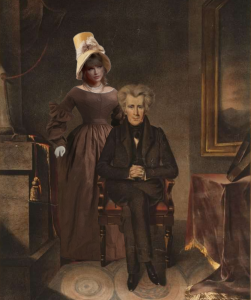The media is not perfect by any means. With constantly evolving mediums within a short span of time, it is becoming more and more difficult to adapt. The ethical standards of new media platforms are often up for interpretation, and the result is a lack of professionalism.
This is not an excuse, as the journalism code of honor is as important as before, but we still have a problem. Society tends to be hypersensitive and easily offended by what and who is being covered, in comparison to what they deem to be more important news.
Is an injured soldier’s recovery more significant than Lamar Odom’s hour-by-hour health update after being found unconscious due to drugs at a Los Angeles brothel? Perhaps. But that’s not the point.
The point is, above all else, the media is a business. A well-known basketball player’s near-death experience will draw in far more ratings than an unknown soldier, despite the fact that he was harmed while fighting for our freedom.
A similar example is when Caitlyn Jenner won the Arthur Ashe Award for Courage at the 2015 ESPY’s. There was an uproar of people who claimed their idol was more courageous, more of a hero, and ultimately, a better candidate for the award.
It’s as if people forgot that one word could have multiple definitions and certainly several connotations. Jenner is seen as a hero in the eyes of the trans community just as an athlete battling cancer is a hero for others. There is no formula to determine that your hero is any more relevant.
Morally, we all want to believe that we would rather hear the frank travesties of the world, but we don’t. The media covers what it covers for a reason. It’s difficult enough to avoid making each broadcast appear as a doomsday scenario with murder rates rising, children dying and the economy faltering.
The media also incorporates supply and demand. As soon as people actually start caring about the military over sports, or social justice over social media, the coverage will change. There are only 24 hours in a day, so unless you care enough to actively seek out the information you wish was available to a greater public, it wont be noticed by the media at large.
Pop culture and entertainment reporting lightens the mood in our dismal world and, although it dominates our television and computer screens, it serves a purpose and is no less or more important than international news.
Unfortunately, there is a reason why investigative reporting has gone to the wayside. This day and age, Woodward and Bernstein’s Watergate would have never happened. The nature of our busy lives doesn’t allow journalists to pursue stories that are a long shot because it may not have a newsworthy outcome. It’s the sad reality in a world full of iPhones and Twitter.
Some may argue that biased news reporting or unfair coverage could harm them. Unless you are some conspiracy theorist, what the media chooses to cover is not going to put your life in danger. Will it mentally scratch your self-righteous ego that is only concerned with your own personal opinion on critical issues? Hell yeah. But that sounds like a personal problem to me.
News flash! Welcome to the real world, where things are unfair, bad guys sometimes win and the good guys get too much credit.
Stop complaining and start showing. The media provides what the audience wants, so controversy will not be a catalyst for change, action will. Us reporters are the watchdogs of society, but it’s about time you throw us a bone.




